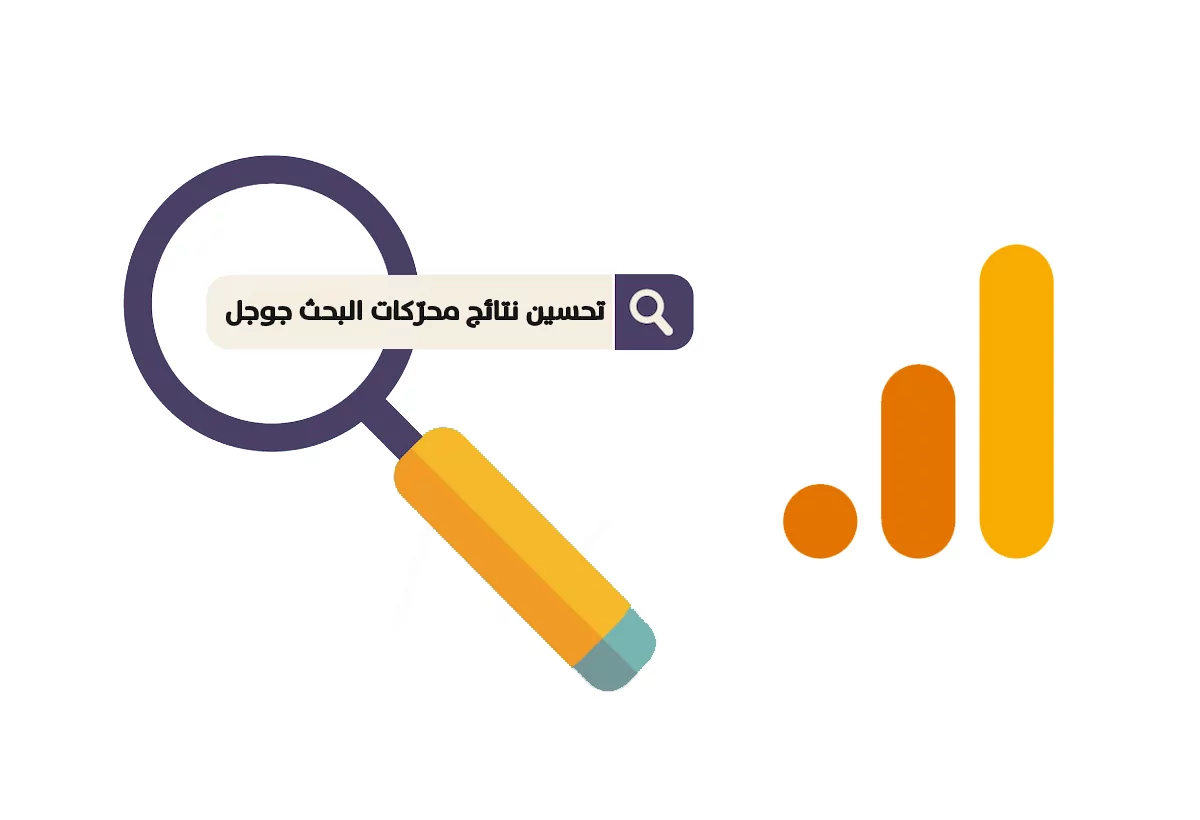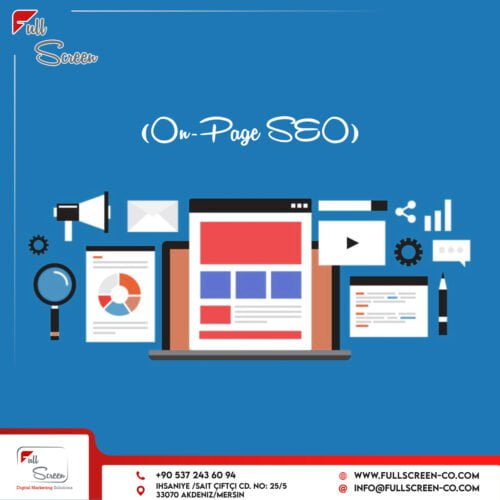- Improve Website Ranking: Effective Strategies for a Successful Journey in Search Results
- Website Analysis - Discover Your Strengths and Weaknesses for a Successful Journey to Improve Website Ranking
- Phase Two: On-Page SEO - improve website ranking
- Phase Two: On-Page SEO - improve website ranking
- Phase Three: Off-Page SEO - improve website ranking
- Stage Four: Monitoring and Analysis
- Stage Four: Monitoring and Analysis
Improve Website Ranking: Effective Strategies for a Successful Journey in Search Results
In the ever-changing world of the internet, reaching the target audience is crucial for the success of any online project. Search engines play a major role in this, as most users rely on search results to find the information they are looking for.
What is Search Engine Optimization (SEO)?
Search Engine Optimization (SEO) is a set of practices aimed at improve website ranking in search results. Simply put, SEO aims to make your website more compatible with search algorithms, increasing its chances of appearing at the top of search results for keywords related to your website’s content.
Why is improving website ranking important?
- Increase organic traffic: The higher your website ranks in search results, the more people will find your site, leading to increased organic traffic.
- Enhance brand credibility: Appearing at the top of search results indicates that search engines trust your website’s content, which enhances your brand’s reputation and makes it more reliable.
- Achieve your marketing goals: Whether you aim to sell products or services or raise awareness about your brand, improving website ranking can help you achieve your marketing goals.
Secrets to Improving Website Ranking in Search Results:
- Understand search algorithms: Search algorithms change constantly, so it’s important to stay informed about the latest developments to ensure your SEO strategy remains effective.
- Content is king: Ensure your website’s content is informative, useful, and relevant to your target audience. Use relevant keywords naturally within your content.
- Technical aspects: Make sure your website loads quickly and is easy to use on all devices.
- Build backlinks: Obtain links from trusted and relevant websites to your content.
- Analyze and monitor: Track your website’s performance and make the necessary adjustments to your SEO strategy to improve results.
Website Analysis – Discover Your Strengths and Weaknesses for a Successful Journey to Improve Website Ranking
The first phase of the journey to improve website ranking forms the foundation for building an effective strategy that helps you achieve your goals. In this phase, you will conduct a comprehensive analysis of your current website using a set of tools and techniques to identify its strengths and weaknesses.
What are the benefits of website analysis?
- Identify strengths: Website analysis will help you recognize the elements that are already contributing to improve website ranking, allowing you to focus on enhancing and leveraging them better.
- Discover weaknesses: Through analysis, you will be able to identify elements that hinder your website’s progress in search results, giving you the opportunity to address and improve them.
- Guide your SEO strategy: The results of the website analysis will guide your eCommerce SEO strategy by identifying areas that need special attention.
- Measure progress: Website analysis serves as a starting point for measuring the progress you will achieve throughout the journey to improve website ranking.
Website Analysis Tools:
Free Website Analysis Tools:
- Google Search Console: A basic tool from Google that allows you to monitor your website’s performance in search results, identify technical issues, and analyze backlinks.
- Google Analytics: This tool provides comprehensive statistical analyses of your website traffic, including the number of visitors, traffic sources, and user behavior.
- Bing Webmaster Tools: A similar tool from Microsoft that allows you to analyze your website’s performance in Bing search results.
Paid Website Analysis Tools:
- Ahrefs: A powerful tool offering advanced SEO analysis features, including backlink analysis, keyword research, and keyword rank tracking.
- SEMrush: A comprehensive SEO tool offering features similar to Ahrefs, in addition to PPC analysis and competitor analysis.
- Moz Pro: A tool focusing on on-page SEO analysis, offering features such as keyword analysis, site audits, and keyword rank tracking.
Steps to Website Analysis:
On-Page SEO Analysis:
- Analyze website content: Ensure your website content is rich in information, useful, and relevant to your target audience. Use relevant keywords naturally within your content.
- Analyze page titles and meta descriptions: Ensure that page titles and meta descriptions are correctly written and include targeted keywords.
- Analyze website structure: Ensure that your website structure is easy to navigate and logically organized.
- Analyze site speed: Ensure that your website loads quickly on all devices.
- Analyze site accessibility: Ensure that your website is accessible to all users, including those with disabilities.
Off-Page SEO Analysis:
- Analyze backlinks: Ensure that your website receives high-quality backlinks from trusted and relevant websites.
- Analyze social presence: Ensure that your website is present on social media platforms and that you interact with your audience regularly.
Phase Two: On-Page SEO – improve website ranking
After analyzing your current website and identifying its strengths and weaknesses, it’s time to move on to the second phase of improve website ranking: On-Page SEO. This phase aims to make the necessary adjustments to your website’s content and structure to make it more search engine friendly, contributing to better rankings in search results.
What is On-Page SEO?
On-Page SEO involves a set of practices aimed at optimizing your website’s content and structure to make it more indexable and understandable by search engines. These practices include optimizing titles and meta descriptions, strategically using keywords, improving site speed, and providing high-quality content that meets user needs.
Why is On-Page SEO Important?
- Improve website ranking in search results: By optimizing your website on-page, you can make your site more relevant to search engine algorithms, contributing to improve website ranking in search results for keywords related to your content.
- Increase organic traffic: The higher your site ranks in search results, the more people will find your site, leading to increased organic traffic.
- Enhance user experience: By providing high-quality content that meets user needs, you can improve the user experience on your site, encouraging them to stay longer and interact more with the content.
- Boost brand credibility: Appearing at the top of search results indicates that search engines trust your site’s content, enhancing your brand’s reputation and making it more reliable.
Essential On-Page SEO Practices:
- Optimize page titles and meta descriptions:
- Use informative and relevant page titles.
- Ensure page titles are unique and not duplicated across your site.
- Strategically use target keywords in page titles.
- Write compelling meta descriptions that summarize the page content and encourage clicks.
- Ensure the length of page titles and meta descriptions meets search engine requirements.
- Strategic keyword usage:
- Identify keywords that your target audience uses to search for information relevant to your site’s content.
- Naturally use target keywords in your site’s content, including page titles, meta descriptions, subheadings, and the main text.
- Avoid keyword stuffing, as this can harm improve website ranking in search results.
- Use keyword analysis tools to help identify suitable keywords for your site’s content.
Phase Two: On-Page SEO – improve website ranking
After analyzing your current website and identifying its strengths and weaknesses, it’s time to move on to the second phase of improve website ranking: On-Page SEO. This phase aims to make the necessary adjustments to your website’s content and structure to make it more search engine friendly, contributing to better rankings in search results.
What is On-Page SEO?
On-Page SEO involves a set of practices aimed at optimizing your website’s content and structure to make it more indexable and understandable by search engines. These practices include optimizing titles and meta descriptions, strategically using keywords, improving site speed, and providing high-quality content that meets user needs.
Why is On-Page SEO Important?
- Improve website ranking in search results: By optimizing your website on-page, you can make your site more relevant to search engine algorithms, contributing to improve website ranking in search results for keywords related to your content.
- Increase organic traffic: The higher your site ranks in search results, the more people will find your site, leading to increased organic traffic.
- Enhance user experience: By providing high-quality content that meets user needs, you can improve the user experience on your site, encouraging them to stay longer and interact more with the content.
- Boost brand credibility: Appearing at the top of search results indicates that search engines trust your site’s content, enhancing your brand’s reputation and making it more reliable.
Essential On-Page SEO Practices:
- Optimize page titles and meta descriptions:
- Use informative and relevant page titles.
- Ensure page titles are unique and not duplicated across your site.
- Strategically use target keywords in page titles.
- Write compelling meta descriptions that summarize the page content and encourage clicks.
- Ensure the length of page titles and meta descriptions meets search engine requirements.
- Strategic keyword usage:
- Identify keywords that your target audience uses to search for information relevant to your site’s content.
- Naturally use target keywords in your site’s content, including page titles, meta descriptions, subheadings, and the main text.
- Avoid keyword stuffing, as this can harm improve website ranking in search results.
- Use keyword analysis tools to help identify suitable keywords for your site’s content.
Optimize Your Content:
- Ensure your content is informative, useful, and relevant to your target audience.
- Write comprehensive content that covers all aspects of the topic you are addressing.
- Use clear and direct language that is easy for your target audience to understand.
- Break your content into short, readable paragraphs.
- Use images and videos to make your content more engaging.
- Regularly update your content with new and useful information.
Improve Site Speed:
- Ensure your website loads quickly on all devices, including desktops, tablets, and smartphones.
- Use site speed analysis tools like Google PageSpeed Insights to check your loading speed and identify areas for improvement.
- Optimize your images by compressing them and using appropriate sizes.
- Reduce the number of JavaScript and CSS files on your site.
- Use a Content Delivery Network (CDN) to distribute your content across multiple servers worldwide.
Improve Your Site Structure:
- Ensure your site structure is easy to navigate and logically organized.
- Use a sitemap to help search engines understand your site’s structure.
- Use subheadings (H1, H2, H3, etc.) to organize your content.
- Use internal links to connect different pages of your site.
- Ensure your site is mobile-friendly.
Enhance User Experience:
- Ensure your site is easy to use and enjoyable to navigate.
- Use an attractive and user-friendly design.
- Ensure your site is compatible with all browsers.
- Conduct user testing to understand how users interact with your site and identify areas for improvement.
Use Structured Data:
- Use structured data to provide search engines with additional information about your site’s content.
- Structured data can help search engines understand the type of content on your site, such as articles, products, or events.
- Structured data can improve your site’s appearance in advanced search results, such as featured snippets or product images.
Tools for On-Page SEO:
- Google Search Console: This tool provides information about your site’s performance in search results, helping you identify technical issues and improve your on-page SEO.
- Google Analytics: This tool offers comprehensive analytics about your site’s traffic, including visitor numbers, traffic sources, and user behavior.
- Ahrefs: A powerful tool offering advanced SEO analysis features, including backlink analysis, keyword research, and keyword ranking tracking.
- SEMrush: A comprehensive SEO tool offering features similar to Ahrefs, along with PPC ad analysis and competitor analysis.
- Moz Pro: A tool focused on on-page SEO analysis, offering features like keyword analysis, site audits, and keyword ranking tracking.
Tips for Improving On-Page SEO to Improve Website Ranking:
- Start with the basics of On-Page SEO before moving on to more complex practices.
- Be patient, as improving your On-Page SEO can take time to see results.
- Regularly monitor your site’s performance and make necessary adjustments to your SEO strategy.
- Keep up with the latest developments in search algorithms and update your site accordingly.
Phase Three: Off-Page SEO – improve website ranking
Get links from other websites to your site
After optimizing your website’s content and structure to make it more search engine friendly (On-Page SEO), it’s time to move on to the third phase of improve website ranking: Off-Page SEO. This phase aims to acquire links from other relevant websites to your site, contributing to enhancing your site’s reputation and increasing search engine trust.
What is Off-Page SEO?
Off-Page SEO involves a set of practices aimed at acquiring links from external websites to your site. These links are considered “votes” of confidence for your site in the eyes of search engines. The more high-quality links pointing to your site, the better your chances of appearing at the top of search results.
Why Off-Page SEO is Important for improve website ranking:
- Improving search engine ranking: External links are one of the most important factors that search engines use to evaluate the importance of your site and improve its ranking in search results.
- Increasing organic traffic: The more people click on external links pointing to your site, the more visitors you will get.
- Enhancing brand reputation: External links contribute to building a strong reputation for your brand by associating your site with credible and relevant sources.
- Increasing awareness of your products or services: The more people see links to your site, the more awareness there will be about your products or services.
Effective Practices for Building Off-Page SEO to improve website ranking:
- Create high-quality content: The best way to attract external links is to create high-quality content that provides real value to your target audience. People will naturally share your content if they find it useful and informative.
- Reach out to other website owners: Contact owners of other websites relevant to your content and discuss the possibility of exchanging links or writing guest posts on their sites.
- Participate in online communities: Join forums and online groups related to your industry, participate in discussions, and provide valuable content. Your participation may lead to getting links from members of these communities to your site.
- Be active on social media: Create accounts for your site on social media platforms and regularly share your content. Engage with your audience and respond to their comments and messages. Your social media posts may lead to links from people interested in your content.
- Submit guest posts: Look for websites related to your content and offer them high-quality guest posts. Make sure to include a link to your site in the article.
- Participate in contests and blogging awards: Join contests and blogging awards related to your industry. You may get links from prominent websites if you win one of these contests.
- Request reviews from bloggers: Contact influential bloggers in your field and ask them to review your products or services. Bloggers may provide links to your site in their reviews.
- Use link-building tools: There are many tools available that help you build external links for your site. Make sure to use reliable and reputable tools.
Tips for Building Off-Page SEO to Improve Website Ranking:
- Focus on quality, not quantity: It is better to get a few links from high-quality websites relevant to your content rather than many links from low-quality sites.
- Avoid buying links: Buying links may seem tempting to quickly get links to your site, but this practice can harm your search engine ranking. Search engines recognize link-buying practices and may penalize sites that engage in them.
- Avoid using link networks: Link networks are groups of websites that create links to each other artificially. Search engines also recognize this practice and may penalize sites participating in link networks.
- Do not create low-relevance content: Do not try to create low-relevance content just to get links. Your audience will focus on high-quality content, and links from low-relevance content will not benefit you in the long run.
- Avoid random outreach to website owners: Do not send random emails to website owners asking for links. Make sure to reach out to website owners relevant to your content and offer them valuable proposals.
- Regularly monitor your link profile: It is important to regularly monitor your link profile and ensure that all links pointing to your site are high-quality. If you find any harmful or suspicious links, take the necessary steps to remove them.
Stage Four: Monitoring and Analysis
The fourth stage of the journey to improve website ranking is the most important, as it allows you to monitor the performance of your website and analyze the results achieved. This helps you identify the strengths and weaknesses of your SEO strategy and make necessary adjustments for continuous improvement.
Why is Monitoring and Analysis Important for improve website ranking?
- Measure the effectiveness of your SEO strategy: Monitoring and analysis help you measure the effectiveness of the SEO strategy you have implemented and determine whether it is achieving the desired results.
- Identify areas that need improvement: By analyzing the data, you can identify areas that need improvement in your SEO strategy, such as improving site content or building more external links.
- Maintain improved ranking: Improving website ranking is an ongoing process that requires patience and persistence. Through monitoring and analysis, you can maintain your site’s improved ranking in search results over the long term.
SEO Analysis Tools for Improving Website Ranking:
- Google Search Console: This tool provides information about your site’s performance in search results and helps you identify technical issues and improve your on-page SEO.
- Google Analytics: This tool offers statistical analyses of your site’s traffic, including the number of visitors, traffic sources, and user behavior.
- Ahrefs: A powerful tool that offers advanced features for SEO analysis, including backlink analysis, keyword research, and keyword ranking tracking.
- SEMrush: A comprehensive SEO tool that offers features similar to Ahrefs, as well as PPC ad analysis and competitor analysis.
- Moz Pro: A tool focused on on-page SEO analysis, offering features such as keyword analysis, site audits, and keyword ranking tracking.
Stage Four: Monitoring and Analysis
The fourth stage of the journey to improve website ranking is the most important, as it allows you to monitor the performance of your website and analyze the results achieved. This helps you identify the strengths and weaknesses of your SEO strategy and make necessary adjustments for continuous improvement.
Why is Monitoring and Analysis Important for improve website ranking?
- Measure the effectiveness of your SEO strategy: Monitoring and analysis help you measure the effectiveness of the SEO strategy you have implemented and determine whether it is achieving the desired results.
- Identify areas that need improvement: By analyzing the data, you can identify areas that need improvement in your SEO strategy, such as improving site content or building more external links.
- Maintain improved ranking: Improving website ranking is an ongoing process that requires patience and persistence. Through monitoring and analysis, you can maintain your site’s improved ranking in search results over the long term.
Steps for Monitoring and Analysis to Improve Website Ranking:
- Set Your Goals: Determine your goals for improving your website ranking, such as increasing organic traffic or improving conversion rates.
- Select Analysis Tools: Choose the analysis tools that meet your needs.
- Collect Data: Gather data from analysis tools, such as organic traffic, keyword rankings, and the number of backlinks.
- Analyze Data: Analyze the data to identify the strengths and weaknesses of your SEO strategy.
- Make Adjustments: Make necessary adjustments to your SEO strategy based on the results you have obtained.
- Monitor Results: Monitor the results of the adjustments you have made and make further adjustments as needed.
Tips for Monitoring and Analysis to Improve Website Ranking:
- Be Specific in Your Goals: The more specific your goals are, the easier it will be to analyze your data and identify areas that need improvement.
- Use Multiple Analysis Tools: Do not rely on just one analysis tool. Use multiple analysis tools to get a comprehensive view of your site’s performance.
- Be Patient: Improving website ranking is an ongoing process that requires patience and persistence. You may not see immediate results.
- Consult SEO Experts: If you need help analyzing your data or improving your SEO strategy, consult an SEO expert.
Tips for Improving Website Ranking:
- Focus on Quality, Not Quantity: It is better to have a few links from trusted and relevant sites than to have many links from weak sites.
- Avoid Shady Practices: Do not attempt to manipulate search algorithms, as this may lead to penalties for your site.
- Be Patient: Improving website ranking is an ongoing process that requires patience and persistence.
Conclusion:
Improving website ranking is not an easy journey, but it is a worthwhile one. By following the tips and guidelines mentioned in this article, you can significantly improve your site and increase your chances of reaching a wider audience and achieving your marketing goals.









